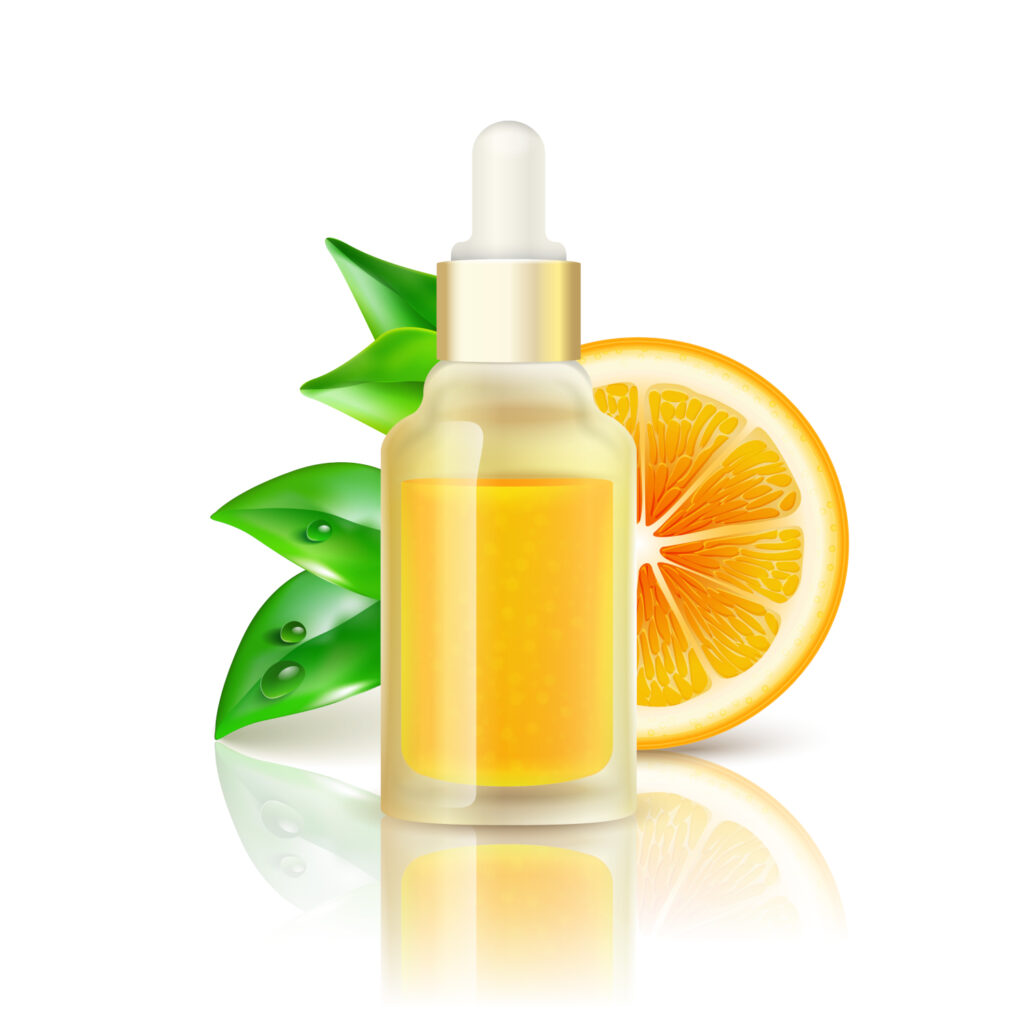Vitamin C (Vit. C) is one of the most abundant antioxidants which is available from various natural sources such as citrus fruits, green leafy vegetables, strawberries, papaya and broccoli. In our last article, we took a look at the benefits of vitamin C. But there are many things you should know before starting Vit. C. Here we take a look at the top 15 things to know before starting Vit. C.
Formulation of Vitamin C
Vit. C is available in the market as a variety of tablets, creams, serum, powders etc. The bioavailability of Vit. C in the skin is not sufficient when it is taken orally. Therefore, the use of topical Vit. C creams/gels/serum/powder is favoured in the practice of dermatology. The serum contains active Vit. C in an almost colourless form. It is unstable and, on exposure to light, gets oxidized and imparts a yellow colour. It is important to note that the efficacy of the Vit. C serum is proportional to the concentration, but only up to 20%.
When should I apply it?
You can use it in the morning or night time. It depends on your skin care routine.
Apply After Cleansing
Dab vitamin C serum after you wash your face and before you apply sunscreen. It could sting or make your skin red at first, but that should go away if you keep using it. Test any new products on a small area before applying it to your whole face.
Can I use it in the morning before work?
Yes. But make sure to use sunscreen after applying Vit. C serum.
Choose L-ascorbic Acid
This form of topical vitamin C is the most active and the most researched. Skin care products sometimes contain other types that aren’t as effective, like magnesium ascorbyl phosphate or ascorbyl palmitate. Check the label before purchasing the product.
Pick a Potent Product
Look for serums with a concentration of vitamin C between 10% and 20%. Lower than that might not bring adequate benefits, and higher could irritate your skin without bringing any additional value.
How long before you see the results
After just a few weeks of starting, you can see visible results.
Make sure to store your vitamin C products correctly.
In topical skin-care products, vitamin C is sensitive to light and air. When exposed to these factors, it becomes oxidized and is converted to a less stable and less effective compound. So these products should be stored in opaque containers that are either air-restrictive or air-tight like a dropper bottle that requires being opened all the way.
Notice if the product has changed colour.
Your Vitamin C serum should be colourless or light straw colour. If it is oxidized, it becomes yellow or brown and is likely going to be less effective. You can still use it if you want, but it won’t be as effective for your skin.
Don’t use vitamin C with certain other ingredients.
Vitamin C is generally pretty safe and well-tolerated, but if you have sensitive skin, it might sting a little bit; especially if you use it in the same part of your routine as exfoliating scrubs or acids.
You should avoid using Vit. C with benzoyl peroxide, which can oxidize the Vit. C and, therefore, make it less potent. You can still use your benzoyl peroxide products, just not in the same part of your routine as the Vit. C. Try using Vit. C in the morning and benzoyl peroxide in the evenings, or use them on different days.
You can use vitamin C with retinol, but be cautious.
In the past, it was thought that you should avoid using vitamin C products with retinoids at all costs. And that is still sort of true. They work best in different skin environments, so using them at the same time may make both less effective. Using them in the same part of your routine can cause irritation, but it’s okay to use them on the same day at different times. Experts generally advise using vitamin C products in the morning and retinoids at night.
Adverse Reactions of Topical Vitamin C
Topical Vit. C is largely safe to use on a daily basis for long durations. It can safely be used in conjunction with other common topical anti-ageing agents such as sunscreens, tretinoin, other antioxidants and alfa hydroxy acids such as glycolic acid.
Minor adverse reactions include:
- Yellowish discolouration of the skin
- Hypo-pigmented hair
- Staining of clothes
- Stinging
- Redness
- Dryness
These can easily be treated using a moisturiser. Care must be taken while applying Vit. C around the eyes.
Should I use vitamin C powder?
Powdered vitamin C is a relatively new product on the market, but it has been gaining popularity recently. It can be mixed with serums or moisturizers to help protect your face and reduce signs of ageing. Taking the correct amount of vitamin C powder is important and it’s easier to apply a serum which is formulated to a specific percentage.
How to know which product to apply?
There are many different formulations and brands of vitamin C available today. You can consult your dermatologist to find out which product will be the most beneficial and suitable for your skin type.
Eat Your Fruits and Vegetables
It’s not all about lotions and serums. The vitamin C in food helps promote healthy skin, too. Citrus fruits, tomatoes, peppers, kiwis and strawberries are all packed with the stuff.
